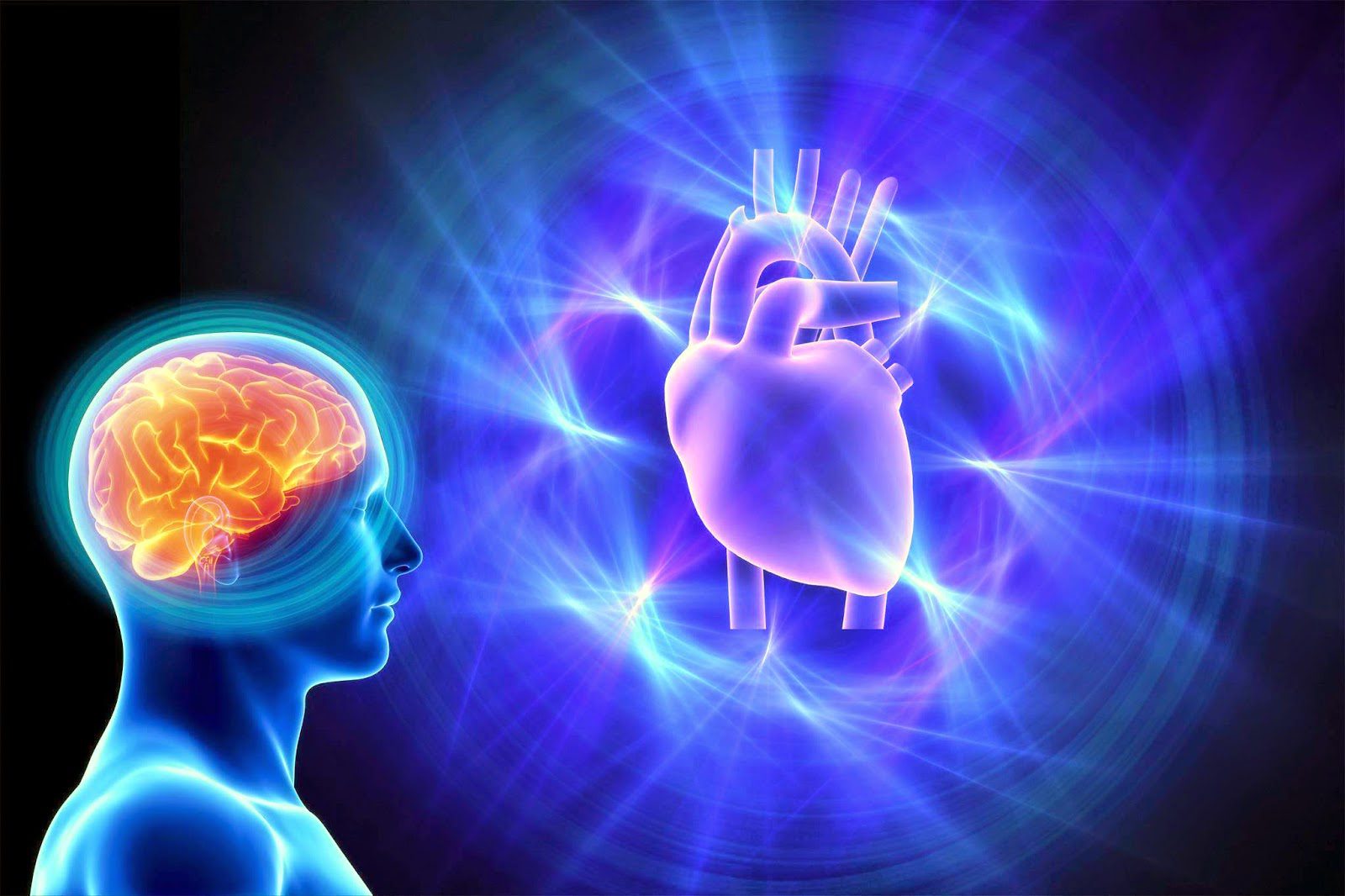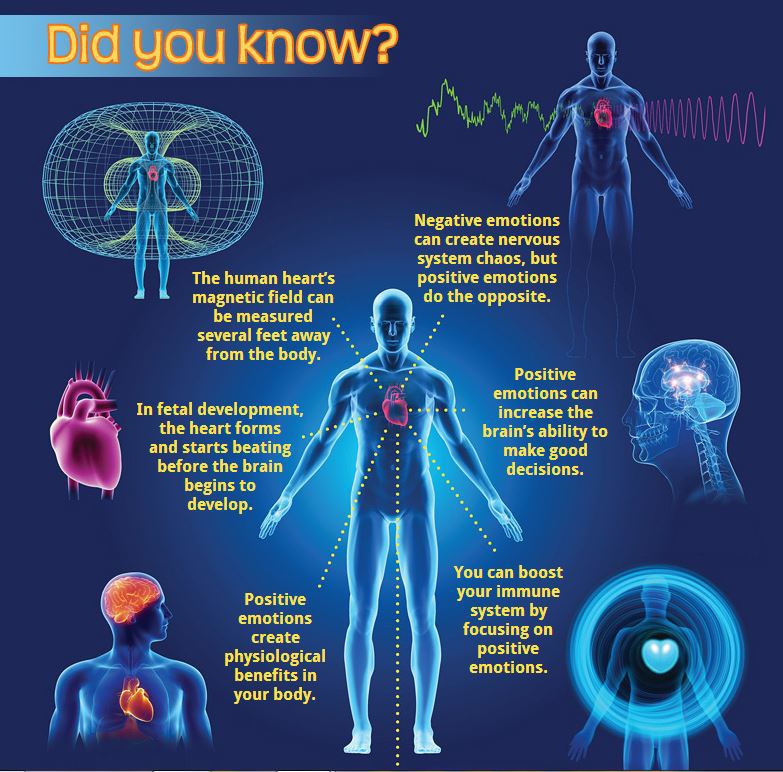Recent discoveries in the new field of Neurocardiology reveal that we are not what we have been told. We are much more than we have ever imagined. We are the masters of our own biology and this is scientifically proven. We have always been taught that our emotions come from our brain and that our heart is simply pumping blood. Scientists have discovered that this is not true. It turns out that the heart sends more information to the brain than the brain sends to the heart. Your heart has its own little brain.
In 1994 researchers at the HeartMath Institute discovered that the heart contains 40,000 Neurites. They also validated that the heart emits an electromagnetic field 1,000 times stronger in amplitude than that of the brain. Pioneering Neurocardiologist, Andrew Armour, M.D., Ph.D. introduced the term ‘heart brain’.
“The heart possesses a complex and intrinsic nervous system that is a brain… the heart is a state of intelligent consciousness.” — J. Andrew Armour, M.D., Ph.D. Translational neurocardiology: preclinical models and cardioneural integrative aspects
Neurocardiology is a new medical field involved in studying the relationship between the heart and the brain. The constant communication between the heart and the brain have proved invaluable to interdisciplinary fields of neurological and cardiac diseases.
What is The HeartMath Institute?
Andrew Armour, MD along with Rollin McCraty, MD, Phd founded The Heartmath Institute in 1991. It is a non-profit educational and research organization whose objective is to help the development of heart-brain-coherence. BeAwake.com is in no way affiliated with HeartMath.
HeartMath involves a number of simple meditative techniques combined with optional biofeedback technology to measure your heart rhythms. You combine heart focus with breathing techniques which help to change your emotional state to get into a state of heart-brain coherence. Coherence can be seen through EEG and EKG machines. When you are in coherence your heart and brain rhythms will be smooth sine wave patterns as opposed to jagged patterns as seen in the image below.
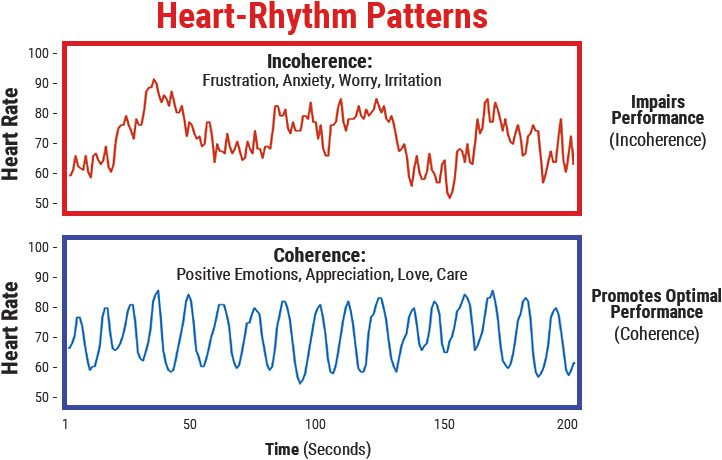
These methods train people to regulate their heart rate variability which in turn assists with self-regulating emotions and behaviors reducing stress, increasing resilience, and unlocking intuitive guidance.
The Science of HeartMath
In the early 1990s, researchers at the HeartMath Institute found that negative or stressful emotions threw the nervous system out of sync, and when that happened our heart rhythms became disordered and appeared jagged on a heart rhythm monitor. This placed increased stress on the physical system and negatively impacted mental functions. Positive emotions like appreciation, love, care, and compassion, in contrast, were found to increase order and balance in the nervous system, and produce smooth, harmonious, sine-wave like coherent heart rhythms. These harmonious rhythms reduced stress but they did more. They actually enhanced people’s ability to think more clearly and to self-regulate their emotional responses.
Practicing self-love, compassion for others, kindness and appreciation can assist us with separating intuitive heart feelings from brain-centered mental concerns. Keeping a gratitude journal can be really helpful with this. Practicing mindfulness where you observe your thoughts without judging them or obsessing over them can also help you to tune into your heart’s intelligence.
“The moment you change your perception is the moment you rewrite the chemistry of your body.” — Bruce Lipton, PhD. — stem cell biologist, bestselling author of The Biology of Belief, and recipient of the 2009 Goi Peace Award
The lack of alignment between what our mind says and what our intuitive heart is quietly trying to tell us can be one of the biggest unrecognized sources of stress. It’s like being pulled in two different directions at once.
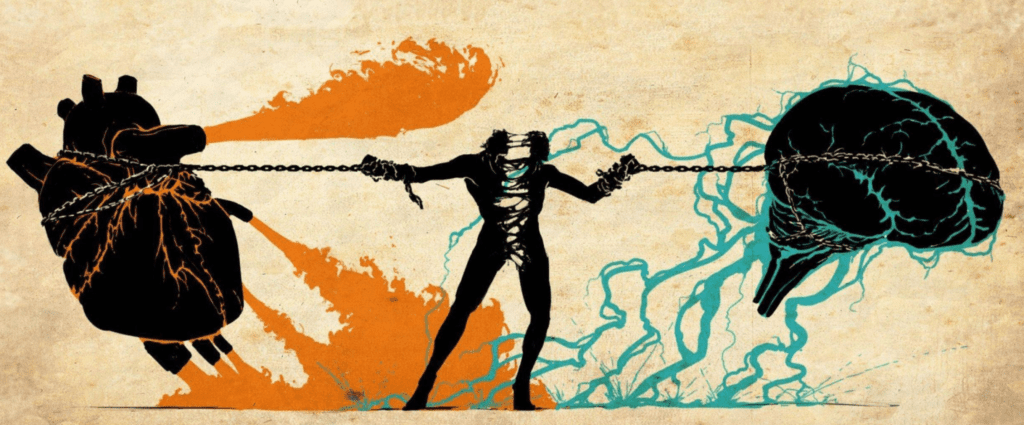
Knowing that the heart radiates a magnetic field that can be detected several feet outside the body with sensitive magnetometers, researchers came up with the idea to see if they could detect a person’s heartbeat in a glass of water. They placed an electrode in a glass of water and then placed the glass in front of but not touching the person’s chest. The experiment worked. The heartbeat was indeed detected in the water.
Realizing that the human body is 80% water, the next step was obvious. They set out to see if a person’s heartbeat could be detected in another person’s body and brain. Indeed, they found that they could detect this, which then led to a series of experiments that confirmed that the electromagnetic signal that the heart radiates outwardly into the environment can be detected by other people and animals who are nearby.
In essence, what this means is that a subtle yet influential electromagnetic or ‘energetic’ communication system operates just below our conscious awareness.
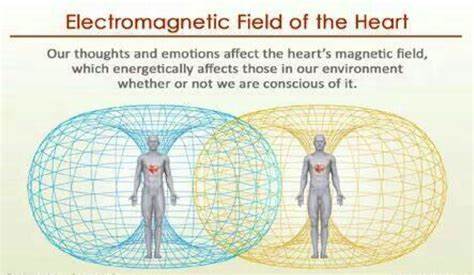
This communication system energetically connects us to others and explains how we can feel or sense another person’s presence or their emotional state, before having any cues from their body language or tone of voice.
“Picture heart intelligence as the flow of awareness, understanding and intuitive guidance that we experience when the mind and emotions are brought into coherent alignment with the heart. This intelligence brings down the power of love from the universal source into our life’s interactions in practical, approachable ways which inform us of a straighter path to our fulfillment.” — Doc Childre, HeartMath Founder, Chairman and Co-CEO
The heart contains an intricate network of several types of neurons, neurotransmitters, proteins and support cells, like those found in the brain. Below is an image of the ganglion found in the heart. A ganglion is a group of neuron cell bodies.
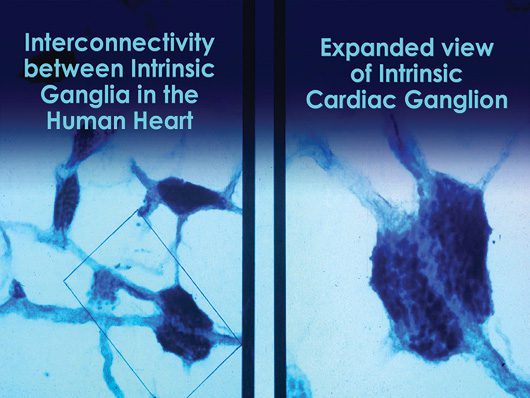
The heart actually sends more information to the brain than the brain sends to the heart. Furthermore, the heart sends more information to the nervous system than the brain does. From a biophysical perspective, every heart contraction creates a wave that pushes blood through the veins and arteries providing the energetic signal that helps synchronize all the cells of the body, including the brain.
The hearts’ brain allows it to act independently of the cranial brain. It can learn, remember, feel, and sense. All of your joy, pain trauma does not just exist in your brain. When you try to heal trauma talking about your memories it may feel that your healing is incomplete because you are simply accessing your brain and not your heart.
The heart’s magnetic field, which is the strongest rhythmic field produced by the human body, not only envelops every cell of the body but also extends out in all directions into the space around us.
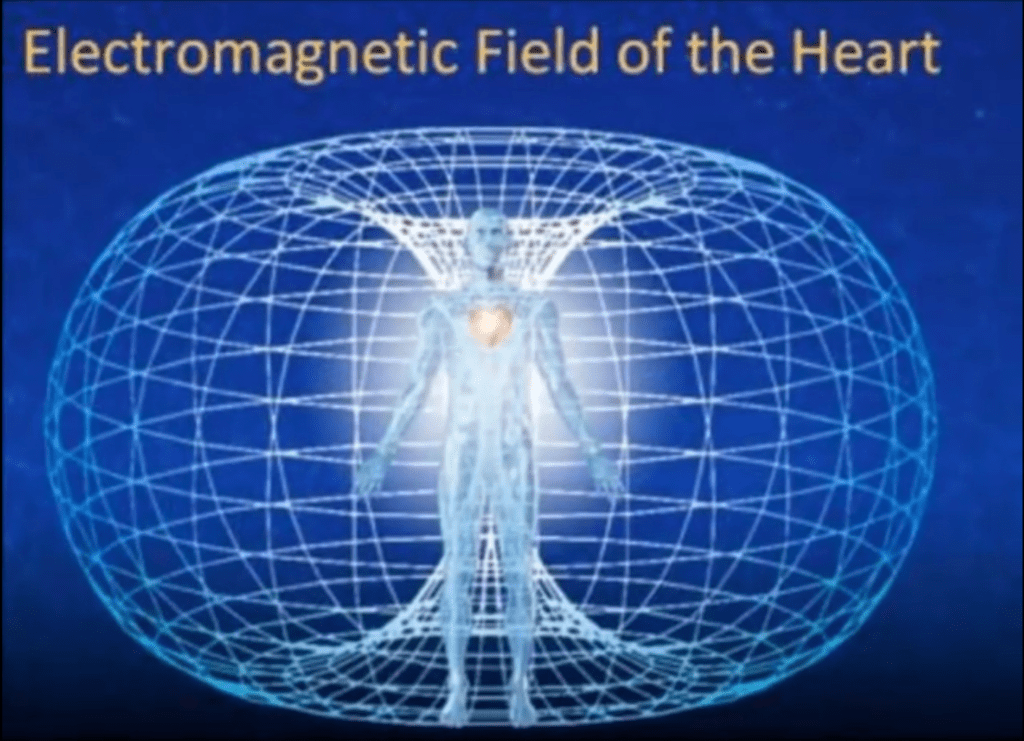
Research from the Heartmath Institute has found that the pattern of your heart rhythm reflects the state of your emotions and nervous system dynamics. As previously mentioned, they found that the heart’s magnetic field can be measured several feet away from the body by sensitive magnetometers. The results of these findings suggest the heart’s field is an important carrier of information. The magnetic field of your body is a tube torus that extends out 3-5 feet from the body.
Another study conducted by Rollin McCraty, Ph.D. substantiated that one person’s heart rate can affect another person’s brain waves; the synchronization between the heart and mind is possible between two subjects. When large numbers of people create a heart-centered state of coherence, this generates a more coherent field environment that benefits others and helps to offset the current planetary discord caused by incoherence.
This study revealed that the heart’s electromagnetic field expands and touches those within 8–25 feet of where they are positioned.
“The heart is the most powerful generator of electromagnetic energy in the human body, producing the largest rhythmic electromagnetic field of any of the body’s organs. The heart’s electrical field is about 1,000 times greater in amplitude than the electrical activity generated by the brain. This field, measured in the form of an electrocardiogram (ECG), can be detected several feet away from the body, in all directions, using SQUID-based magnetometers. Prompted by our finding that the cardiac field is modulated by different emotional states.” — Excerpt from “Science of the Heart” by Rollin McCraty, PhD
How to Achieve Heart-Brain Coherence
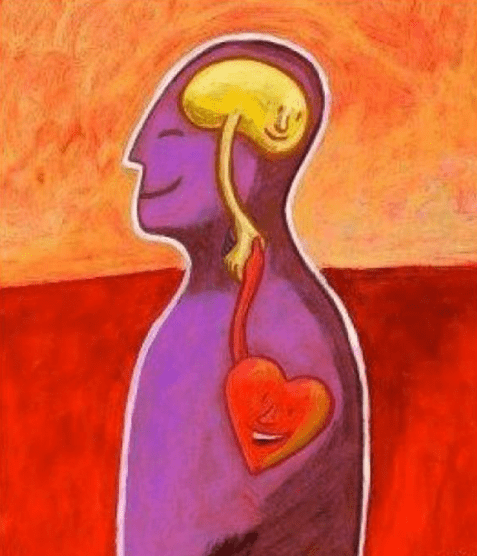
Think about a time when you felt extremely stressed out and had a hard time thinking straight, well this explains the theory behind HeartMath. When you are feeling anxious, sad, irritable, impatient, fearful, or frustrated, your heart rhythm shifts into a disordered and incoherent pattern; when you are feeling appreciation, love, peace, joy, optimism, and calm, your heart rhythm shifts into a more ordered coherent pattern.
Heart Intelligence shows how to replace fear with the attitude of intelligently managed attention. This, in turn, boosts resilience and emotional balance; helping us to make appropriate choices, and clear our mind from anxiety and overwhelm.
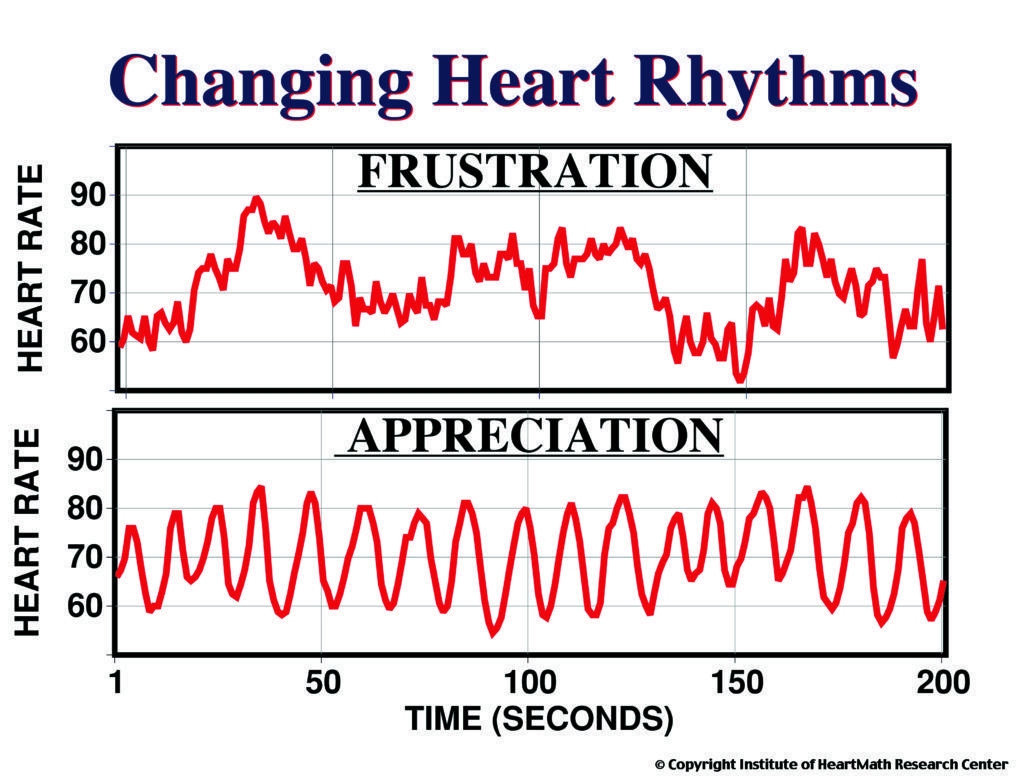
“When our heart sends coherent signals to the brain, the brain synchronizes to the heart’s coherent rhythm. We get into this state of coherence when we shift our emotional state thus achieving heart-brain coherence which helps to calm your mind.” — Childre, Doc., Heart Intelligence: Connecting with the Intuitive Guidance of the Heart
Loosen the hold of stress, worry, and anxiety by actively choosing joy, compassion, appreciation, and love instead. Many of us are gripped by the insidious spread of violent news through social media and the 24-hour TV news cycles. The reality is that we are living in relatively more peaceful times than what the media would have us believe.
“Today we may be living in the most peaceable era in our species’ existence all the way from individual violence such as murder, abuse and assault to international violent conflicts such as war.” — Steven Pinker, The Better Angels of Our Nature: Why Violence has Declined; “…the most inspiring book I’ve ever read.” —Bill Gates (May, 2017)
Heart Hormones
The heart is not just a mini-brain it is also an endocrine gland. When you achieve heart coherence your heart regulates blood pressure and triggers your body to produce a hormone called Atrial Natriuretic Factor (ANF), which is a 28-amino acid polypeptide hormone secreted mainly by the heart atria. This, in turn, triggers 1300 positive biochemical reactions flooding your body with the happy hormones such as endorphins, acetylcholine, melatonin, phenylethylamine, dopamine, norepinephrine, serotonin, and oxytocin.

All of these hormones make it easier to experience peace, positive feelings and achieve a deeper meditative state more quickly. It also helps to overcome old negative patterns.
“When you harmonize the heart and brain you can awaken your longevity enzymes and trigger your immune response.” — Gregg Braden, PhD, New York Times best-selling author, researcher, educator, lecturer and internationally renowned as a pioneer bridging science and spirituality
What is Heart Intelligence?
Heart Intelligence (also known as Heart IQ) is a higher level of awareness that arises when you are able to integrate your physical, mental, emotional and spiritual intelligence. When fully embodied and integrated, Heart Intelligence gives you the ability to be fully authentic, present, connected and heart-directed in every area of your life so that you can experience greater levels of performance, creativity, intuition and higher-ordered thinking. The more often we train our brains to shift into coherence with the heart the easier it becomes. Remember that taking mini-breaks to get in ‘coherence’ can go a long way in helping you gain inner balance.
Why Practice Heart-Brain Coherence
-
-
- More balanced and regulated autonomic nervous system function
- More balanced immune and hormonal system function
- Improved memory along with the ability to think more clearly
- Increased athletic performance
- Calm, measured positive thinking
- Better access to your own wisdom and intuition
- Lower blood pressure
- Reduction in stress
- Increased compassion for others
-
Forgotten Ancient Wisdom of Heart Coherence
Over thousands of years, most often without knowing about one another, cultures across the planet seemed to share a similar knowledge about the heart as a source of intelligence and inner guidance.
Traditional Chinese Medicine teaches us that the heart (Xin) is the ‘emperor’ of all other energy systems. The heart is where the Shen (spirit) resides. Shen contains thoughts, emotions, and processes sensory information. Thus all illnesses from sensory disorders to mental, physical, personality disorder, or emotional imbalance are all because of the Shen inside the heart is weak or ungrounded. Ancient Chinese believed the heart was the organic motor of the body and as well as the seat of intelligence, a significant spiritual and religious symbol.
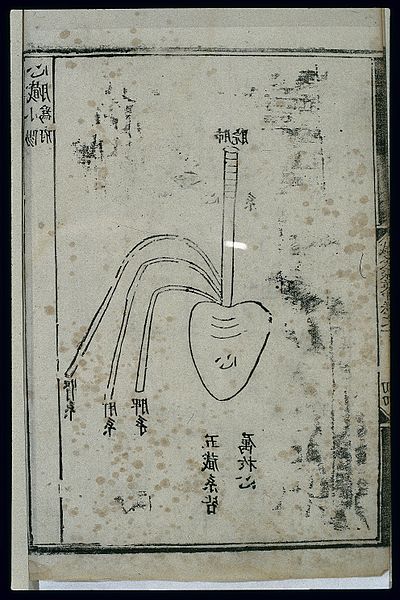
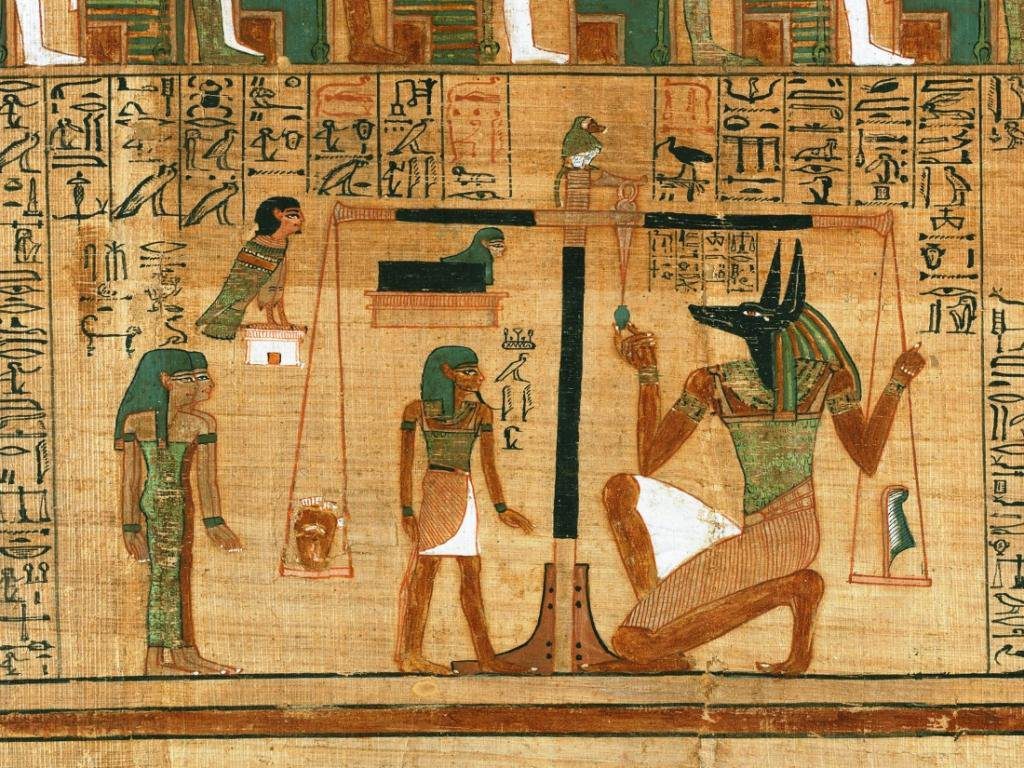
The Egyptians believed that the heart was the origin of human wisdom, rather than the brain. All notions of physiology and disease were linked in concept to the heart, and it is through the heart that God speaks, giving ancient Egyptians people the wisdom of God and the will of God.
Upon dying the Ancient Egyptians believed one must appear before Osiris in the Hall of Truth and in the presence of 42 Judges to have one’s heart weighed in the balance on a golden scale against the white feather of truth.
The Father of Western Philosophy, Aristotle, made significant and lasting contributions to nearly every aspect of human knowledge, from logic to biology to ethics and aesthetics. Aristotle taught a cardiocentric model of human anatomy where the heart was the true center of human intelligence and not the brain.
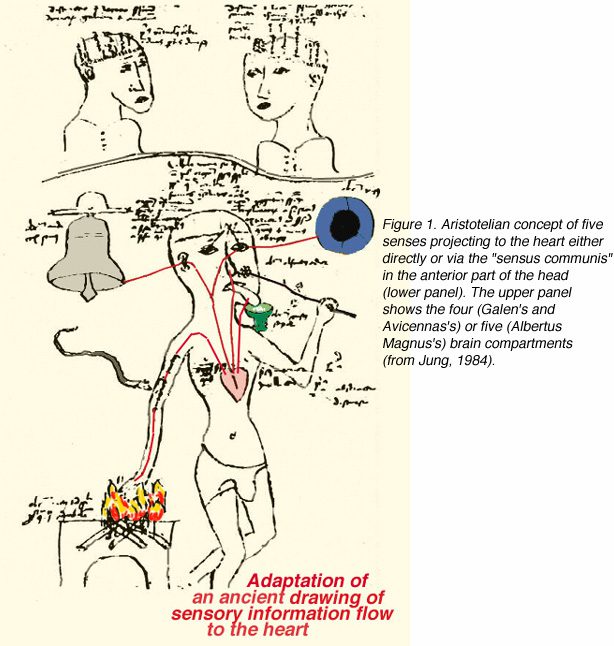
The Sanskrit word Citta and the Japanese word Kokoro translate to English as both “heart” and “mind.”
Many Buddhist teachings address the connection between the brain and the heart. Buddhism has long asserted a connection between the heart and the mind. Vedic and Upanishadic traditions in Hinduism believe that the heart and the mind are intrinsically connected. They believe that the heart is the center of everything. It is the seat of the soul and holds the secret of existence. The Upanishadic Hindus believed that the heart’s energy is more intense and powerful than any human being can imagine. Its energy radiates in all directions and touches anyone and everyone who comes into contact with it.
Sources
- “Has Global Violence Declined? A Look at the Data“
- “How The Human Heart Can and Does Affect the Earth’s Electromagnetic Field‘
- “What is Heart Intelligence?“
- “The Meaning and Significance of Heart in Hinduism“
- Heart Intelligence: Connecting with the Intuitive Guidance of the Heart
- Human by Design: From Evolution by Chance to Transformation by Choice
- Heart Over Brain Community

